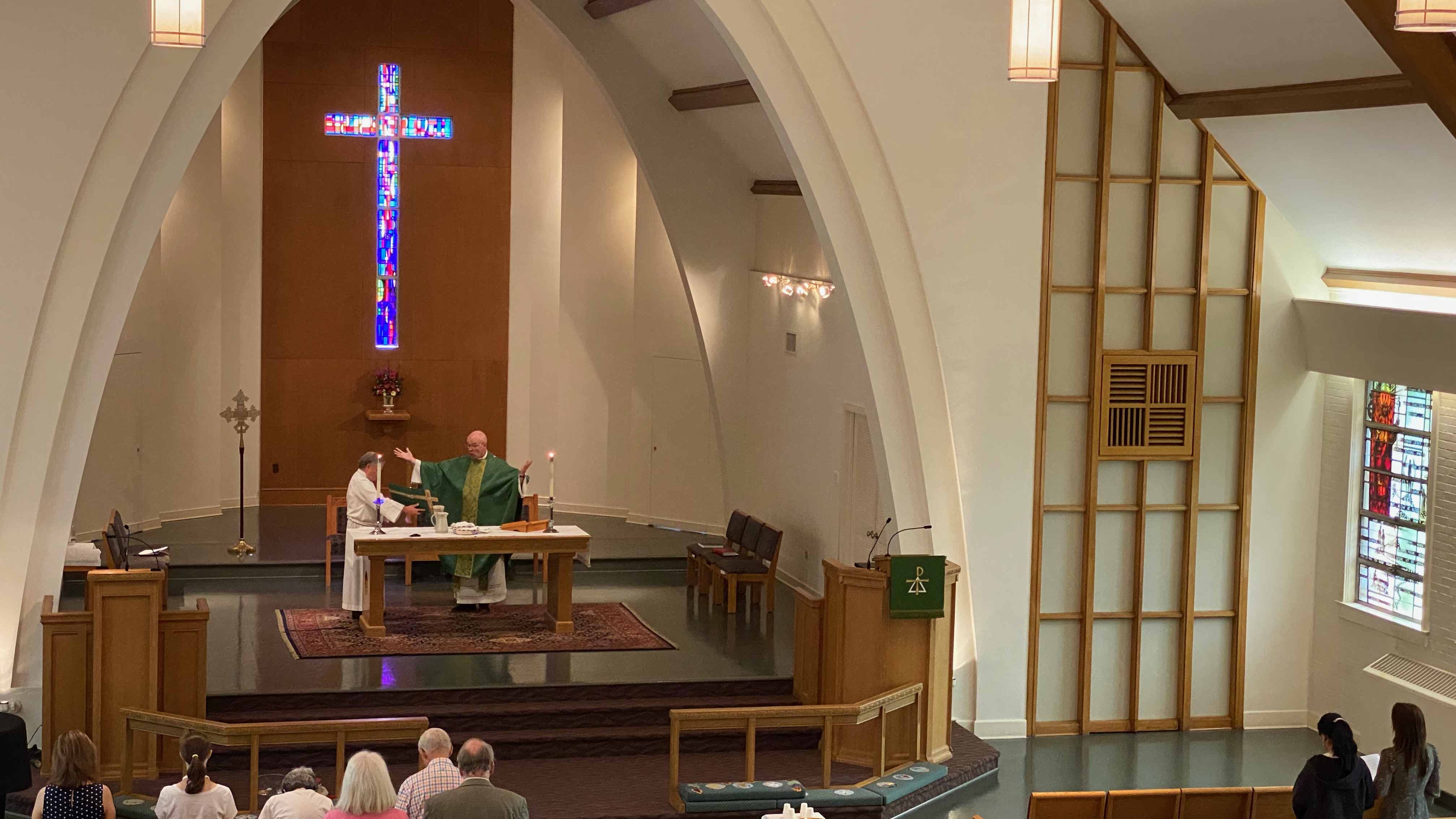I hold to none of the above positions. As a person of faith, seeking ecumenical relationships has been a feature of my Christian practice for as long as I can remember. Even as a kid, I was an eager participant in the Lenten ecumenical prayer breakfasts sponsored by the ministerial association in my hometown. I began seminary at Yale University Divinity School precisely because of its ecumenical orientation, though it was there that I also rediscovered my passionate Lutheranism. During my three decades as a parish pastor, I have been a leader in ecumenical ventures at local, synodical, national, and even to some extent, international levels.
In short, for me, ecumenism, seeking the greater visibility of Christ’s church, is central to my Christian understanding, not ancillary, not an extra, not an add on. Why? Because Jesus prayed for the oneness, the unity, of his followers. In the lengthy prayer for the disciples toward the culminating conclusion of John’s Gospel, the gospel writer records these words, this prayer: “I ask not only on behalf of these [disciples], but also on behalf of those who will believe in me through their word, that they may all be one. As you, Father, are in me and I am in you, may they also be in us, so that the world may believe that you have sent me. The glory that you have given me I have given them, so that they may be one, as we are one, I in them and you in me, that they may become completely one, so that the world may know that you have sent me and have loved them even as you have loved me.” (John 17:20-23)
Most ecumenists I know see this biblical passage as the theological foundation for ecumenism. I share that view and see John 17 as more than a biblical proof text for pursuing Christian unity.
I call your attention to two features of this passage from John, this portion of the lengthy high priestly prayer attributed to Jesus. First, the oneness, the unity of Jesus’ followers is a participation in the unity of the Godhead, what would become a Trinitarian understanding of God as Father, Son, and Holy Spirit – “as you, Father, are in me and I am in you, may they also be in us.” Thus, the ecumenical movements that promote Christian unity have a mystical, transcendent dimension through our participation in the very life of God. Wow! That is awesome, awe-inspiring, wonderous, amazing – if we let these sacred realities soak into our awareness. Ecumenical work is holy work.
The second feature of the passage from John that I want to emphasize is that the oneness of Jesus’ followers is not for its own sake, it is not inwardly focused. No, our unity is outwardly focused, for the sake of the world, “so that the world may believe….” Thus, ecumenical initiatives that seek greater visible Christian unity have an evangelistic thrust, end, and purpose. When Christians fight with one another over seemingly petty theological matters, it is a scandal to the world. In contrast, when Christians can happily live, work, pray, lead, and serve together in unity, even amidst their diversity, it is a loving, faithful witness to the world. “See how they love one another,” it had been said of early Christians (a quote attributed to Tertullian at the end of the second century in a letter to Roman authorities). In short, ecumenism serves evangelism.
Thus, because of the sacred, mystical aspects of Christian unity, and because our unity is a witness to a cynical world that may nurture belief in our gracious and loving God, I see ecumenism as central to Christian ministry and mission.
But there is more. Ecumenism, at its best, is not about seeking the lowest common denominator of shared beliefs among Christians to produce some kind of generic, “tradition-less” Christianity. No, ecumenism is at its best when Christians engage each other from the fullness of their particular theological, spiritual, and historical traditions. From one important vantage point, it is a sad and scandalous feature of Christian history that there are so many different distinctive churches, or “brands” of Christians, so very many denominations, as they are commonly called. That is true, as these varied traditions have often resulted from church fights ending in schism. But there has always been diversity of practice and thought in Christianity from the very beginning. When we come at this diversity from the perspective of appreciating difference and yet nurturing conditions in which that diversity is not the cause of church infighting, then the multiplicity of Christian traditions can become a beautiful wonder to behold, a lovely tapestry comprised of different parts where the whole is greater than the sum of its parts.
Moreover, no single Christian tradition can encompass the fullness of the mystery and Revelation of Christ. Thus, we need each other for a sense of complementarity and completion. Furthermore, when engaging Christians of other traditions meaningfully and robustly, we learn a lot more about our own distinctive traditions. I am a much stronger and devoted Lutheran because of my long-standing commitments to ecumenical engagement.
So, you can count on the fact that ecumenism will play some significant role in my ministry at Resurrection Lutheran Church and in the wider Arlington community, in our Synod and perhaps beyond. What in particular that will look like remains to be seen, as the pandemic-induced sheltering in place inhibits any meaningful, ecumenical outreach at this time. But watch for an unfolding of ecumenical commitments, “so that the world may know that [God has] sent [Jesus] and [has] loved [Jesus’ followers] even as [God has] loved [Jesus].” (cf. John 17:23)
Echoing Jesus’ high priestly prayer for unity among the followers – for the sake of the world,
Pastor Jonathan Linman






